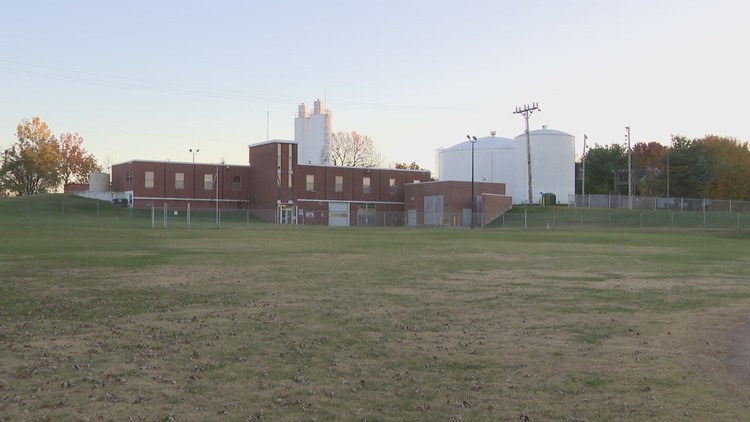ST CHARLES, Mo. — The City of St. Charles has withdrawn its request for a temporary restraining order against Ameren after a dispute earlier this month regarding the planned construction of an extraction well at the company's Huster Road substation.
The city filed for the restraining order on Thursday, Sept. 14, claiming the company failed to respond to the city's orders to halt the construction of the extraction well. In response to the filing, Ameren Missouri argued that the well is only necessary due to "irresponsible" and "inappropriate" actions of the city regarding City Well 4 to hamper contamination cleanup efforts at the Elm Point Wellfield.
The U.S. Environmental Protection Agency later stated Ameren had agreed not to build the extraction well without proper approval.
Ameren Missouri on Thursday released the following statement:
"We are pleased that the City of St. Charles has agreed to dismiss its improper temporary restraining order action. We urge the City, as the U.S. Environmental Protection Agency (EPA) has urged repeatedly, to operate their water supply wells and public water supply system in accordance with Missouri Department of Natural Resources (MDNR) regulations and the Safe Drinking Water Act and to refrain from interfering with Ameren Missouri's remediation efforts. St. Charles drinking water is safe and complies with the Safe Drinking Water Act. The EPA and MDNR have stated this, and more than 20 years of testing – including last week – confirm this as well."
A city spokesperson said to direct requests for comment to Mayor Dan Borgmeyer; attempts to contact the mayor were not immediately returned.
How we got here
The filing was the latest development in ongoing contention between Ameren in the city since six of the seven wells at Elm Point Wellfield had to be shut down due to contamination, which the EPA found originated from an Ameren substation. Ameren was ordered to clean up the contamination, and the logistics of that cleanup have caused rising tensions between Ameren and the city for months.
During a weekly technical call with the EPA on Sept. 13, city leaders said they learned for the first time that Ameren planned to drill the extraction well without approval from the EPA. The city claimed the well could release "a significant amount of new contaminants" into the groundwater from which the city derives its drinking water.
The city said regulations mandated Ameren must seek the city's approval before commencing any construction, which the company had not done. St. Charles said it posted a "stop work order" at the substation and twice contacted Ameren to seek confirmation that it wouldn't drill the well, but did not receive a response.
"It is unfortunate that Ameren’s leadership chooses to take a confrontational path by flaunting the laws of the City of St. Charles while at the same time placing its residents at risk by potentially contaminating its groundwater," city leaders said in a statement.
An Ameren Missouri spokesperson took a different tune, claiming in a statement that the city "continues to misrepresent the facts and intentionally delay ongoing remediation efforts."
St. Charles said last week that it had shut down Well 4 at the EPA's request due to it testing positive for vinyl chloride, which the city claimed was a result of a barrier constructed by Ameren failing to contain contamination coming from its nearby substation. The well was pumping water into the sewer system as part of contamination testing and was not pumping to the water treatment plant.
According to the EPA, the levels present were not enough to cause public health concerns, but could be an indication of contamination being drawn from the substation to Well 4.
The letter from the EPA demanding the closure of the well showed that Ameren itself had reached out to the EPA stating its concern that the city's continued operation of Well 4 could spread contamination, a concern the EPA said it agreed with. That letter told the city to turn off the well as soon as possible and to "refrain from interfering with the response action so as to allow work to proceed with EPA approval."
"They said 'if you interfere, we will name you as a responsible party for the contamination too,'" St. Charles Mayor Dan Borgmeyer said last week. "So obviously, they backed us off on that."
Last week, the company took steps to get a lawsuit filed against it by the city moved to federal court.



